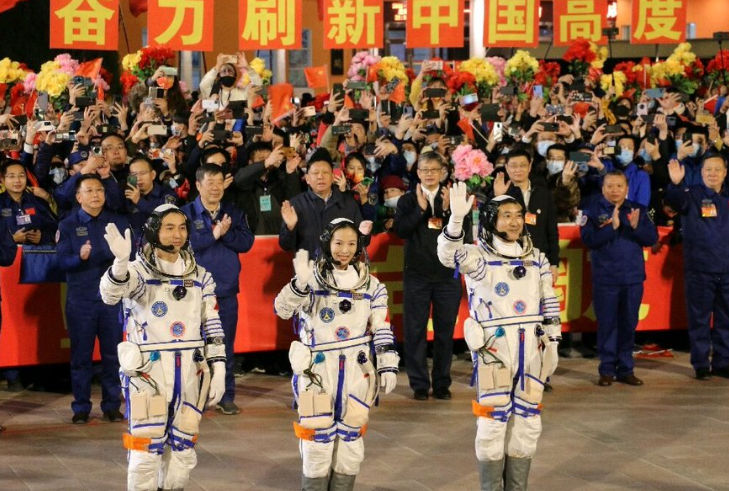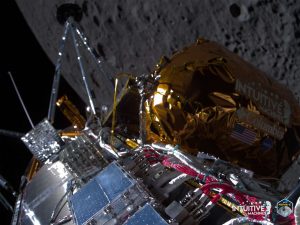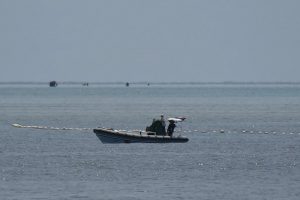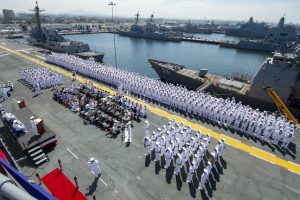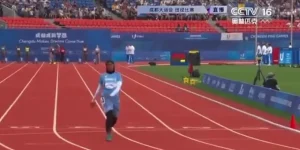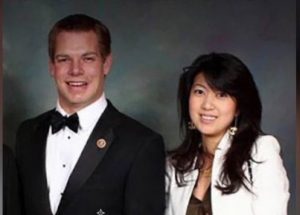Following up on its vow ‘to strengthen its space presence in an all-round manner’, China has completed another successful space mission: Shenzhou 13. With this, they may be well on their way to realizing their ambition of becoming a space power. Meet the stars of China’s latest record-breaking expedition, astronauts Zhai Zhigang, Ye Guangfu and Wang Yaping.
Zhai Zhigang
Zhai Zhigang, born on October 10, 1966 in Longjiang is a Chinese astronaut who performed China’s first spacewalk. He enlisted in the Chinese People’s Liberation Army (PLA) and was accepted into the PLA Army Air Force Aviation Institute, where he learned to pilot fighter jets. He was one of the final candidates for the flying of Shenzhou 5, China’s first crewed spaceflight, in 2003, and served as backup. In 2006, he was a backup for the Shenzhou 6 mission as well. After ten years of waiting and preparation, Zhigang and two other crew members launched Shenzhou 7 from the Jiuquan Satellite Launch Centre in Gansu Province, northwest China, on September 25, 2008.
The astronauts were in Earth orbit for three days. On the second day, while a camera broadcasted the event live to Chinese audiences, Zhigang walked in space from the orbital module.
Also read: SpaceX to launch US spy satellite from Vandenberg SFB using Falcon 9 rocket
Ye Guangfu
Guangfu, who was born in 1980 in Sichuan Province in southwest China, was a former air force pilot with 1,100 hours of flight time, just as Zhigang. During the European Space Agency’s (ESA) underground training course Caverns, he and five other astronauts from the United States, Russia, Spain, and Japan spent six days in Sardinian caves (Cooperative Adventure for Valuing and Exercising human behaviour and performance Skills).
According to the ESA, the project focused on multi-cultural approaches to leadership, teamwork, and decision-making in space-like environments. Guangfu, the first Chinese astronaut to take part in the international training, was praised by teammates for his keen observation and decisiveness during the mission. Additionally, he also received recognition from European Space Agency (ESA) for his excellent performance.
He was a member of Shenzhou 12’s backup crew. Guanfu’s maiden trip into orbit is on the Shenzhou 13 in 2021.
Also read: In a first, all-private astronaut team ready for launch to space station
Wang Yaping
Wang Yaping, born in January 1980 is a Chinese military transport pilot and taikonaut. Wang is the People’s Liberation Army Astronaut Corps’ second female taikonaut, the second Chinese woman in space, and the first Chinese woman to do a spacewalk.
She was a candidate for the space mission Shenzhou 9 in 2012. However, she was not selected and became a member of the backup crew.
As a member of the Shenzhou 10 spaceship crew, which orbited the Earth in June 2013 and docked with the Tiangong-1 orbiting space station, Wang became the second Chinese female spacefarer and was referred to as “Goddess II.” In October 2021, it was announced that Wang was selected as one of the three crew members to fly on Shenzhou 13 to China’s first space station, the Tiangong space station. She was to be the first woman to board the Tiangong space station and perform an extravehicular activity.
With the Shenzhou 13, she’s now the first Chinese woman to stay in orbit for more than 100 days.
Also read: NASA’s new Mt Everest photo shares bizarre resemblance
The Shenzhou 13 crew has safely returned to Earth after the six-month orbital journey that nearly doubled the previous record of China’s
longest single-flight space mission of 92 days set by the Shenzhou 12,
according to Global Times.
The Shenzhou 13 return capsule landed successfully at 9:56
a.m. Saturday in the Dongfeng landing site in the Gobi Desert, North China’s
Inner Mongolia province, according to the statement.
Also read: Common cause of mankind: China renews space cooperation vow
According to Chinese media citing the China Human Space
Agency (CMSA), the medical team certified that the three taikonauts are in good
health, indicating that the Shenzhou-13 manned spaceflight mission was a
complete success.

